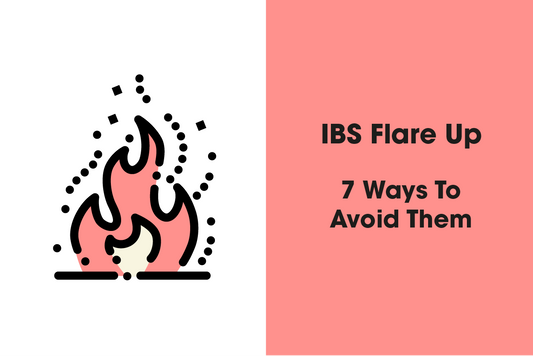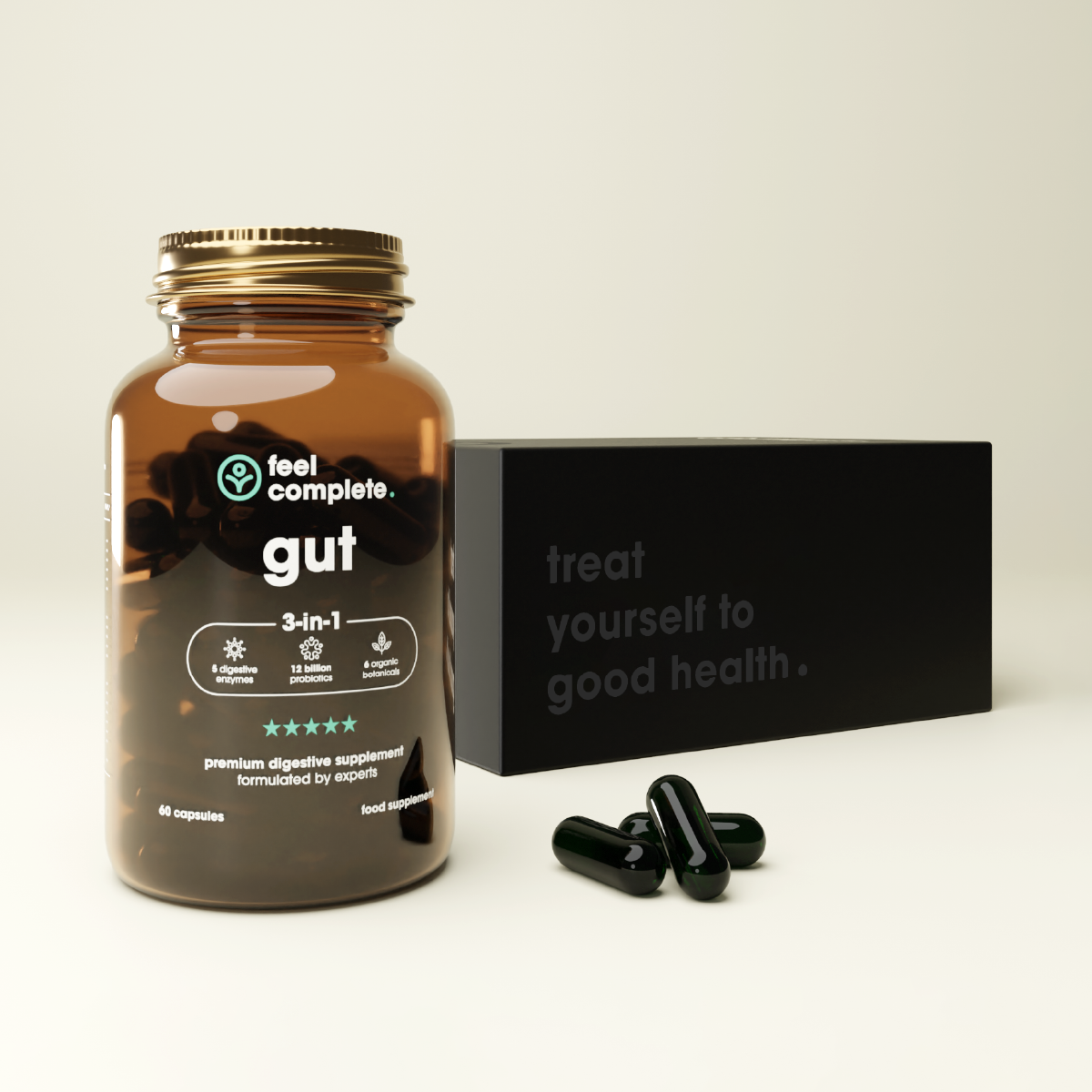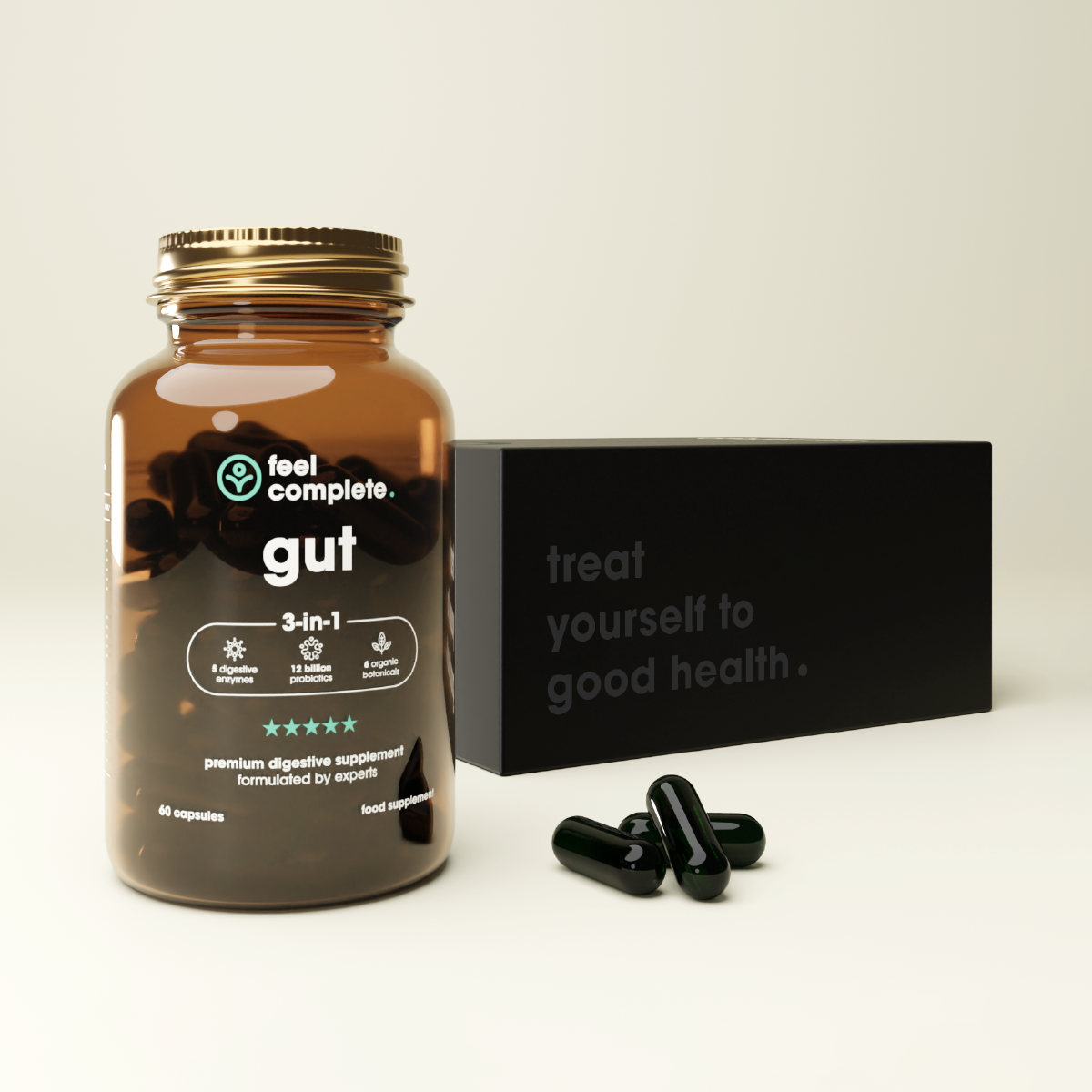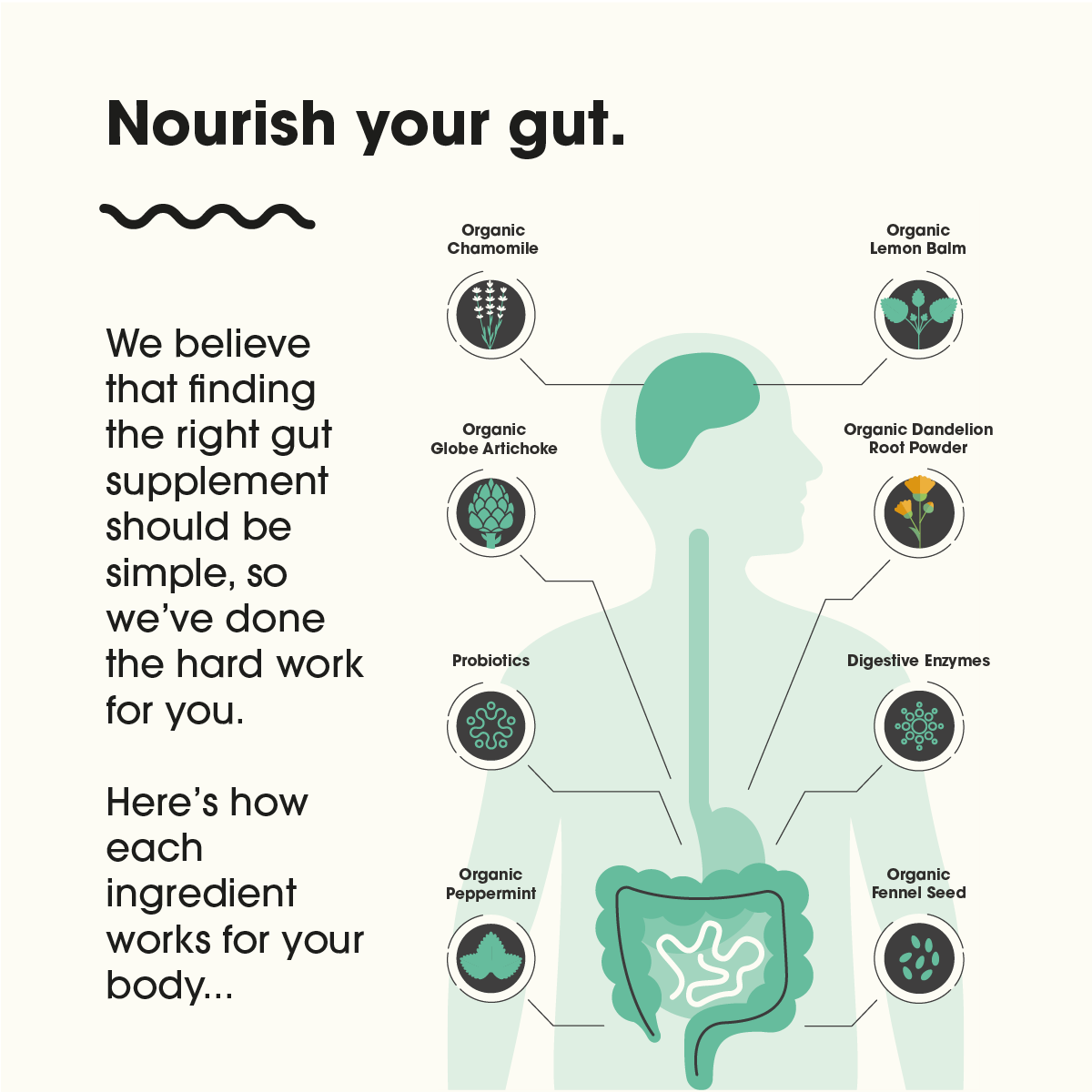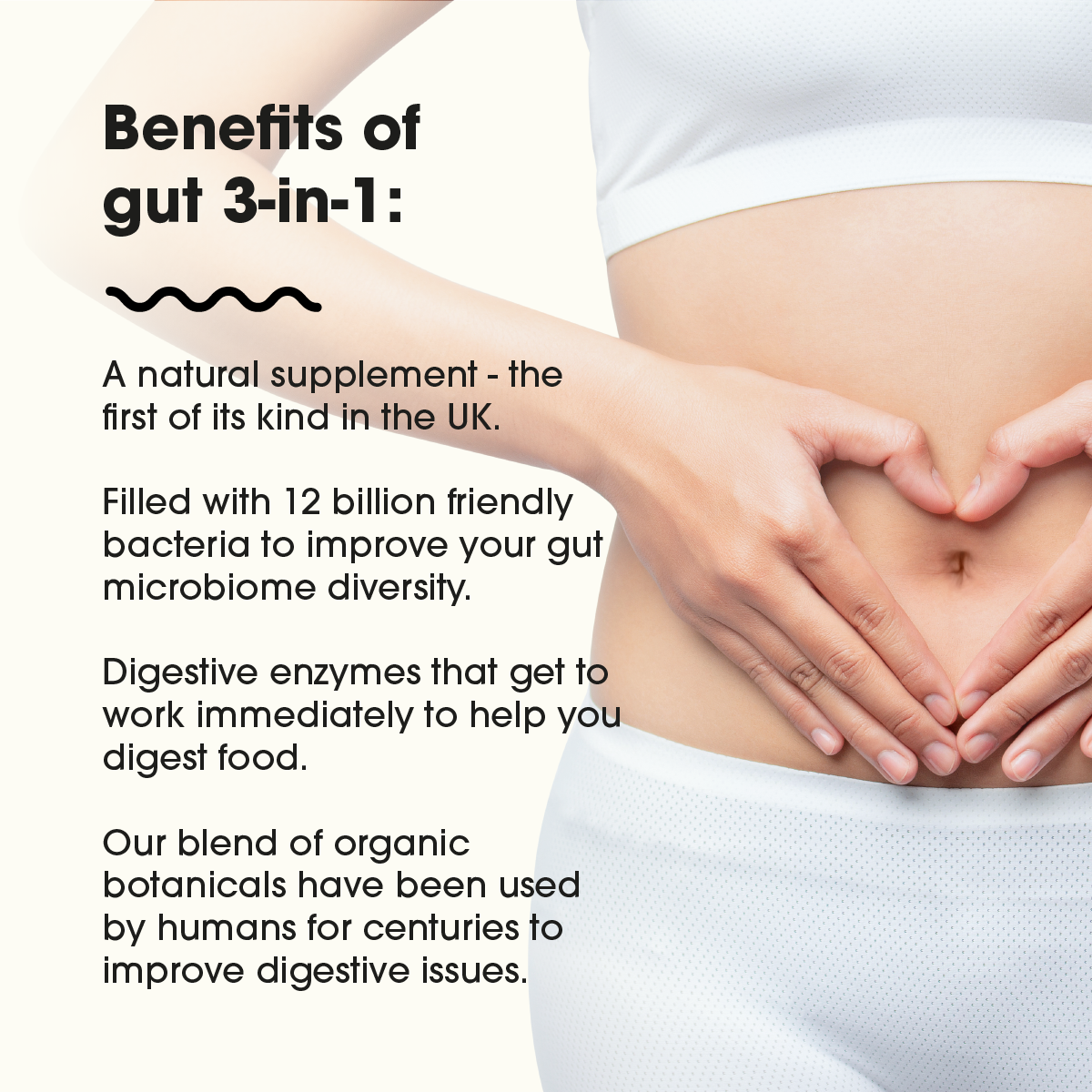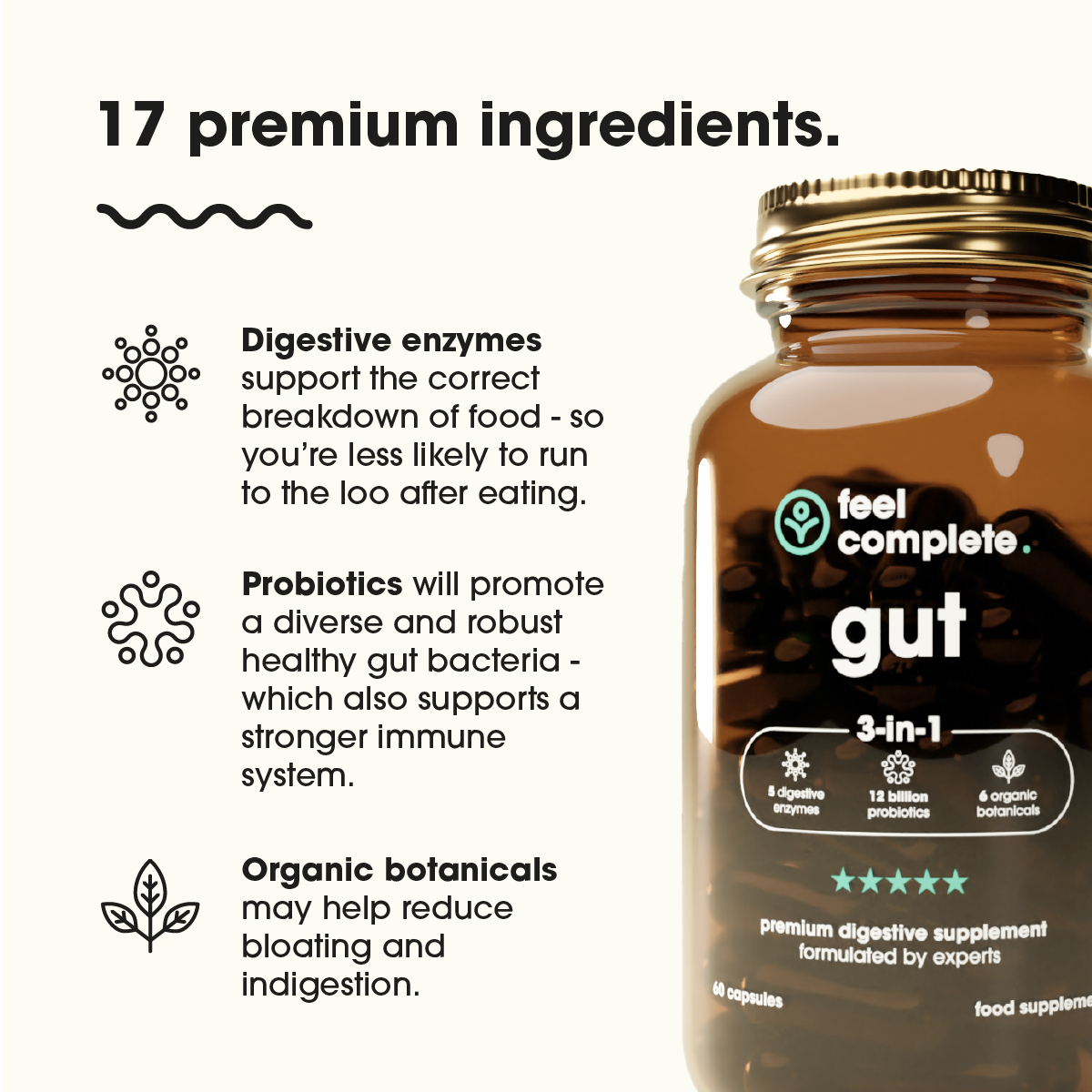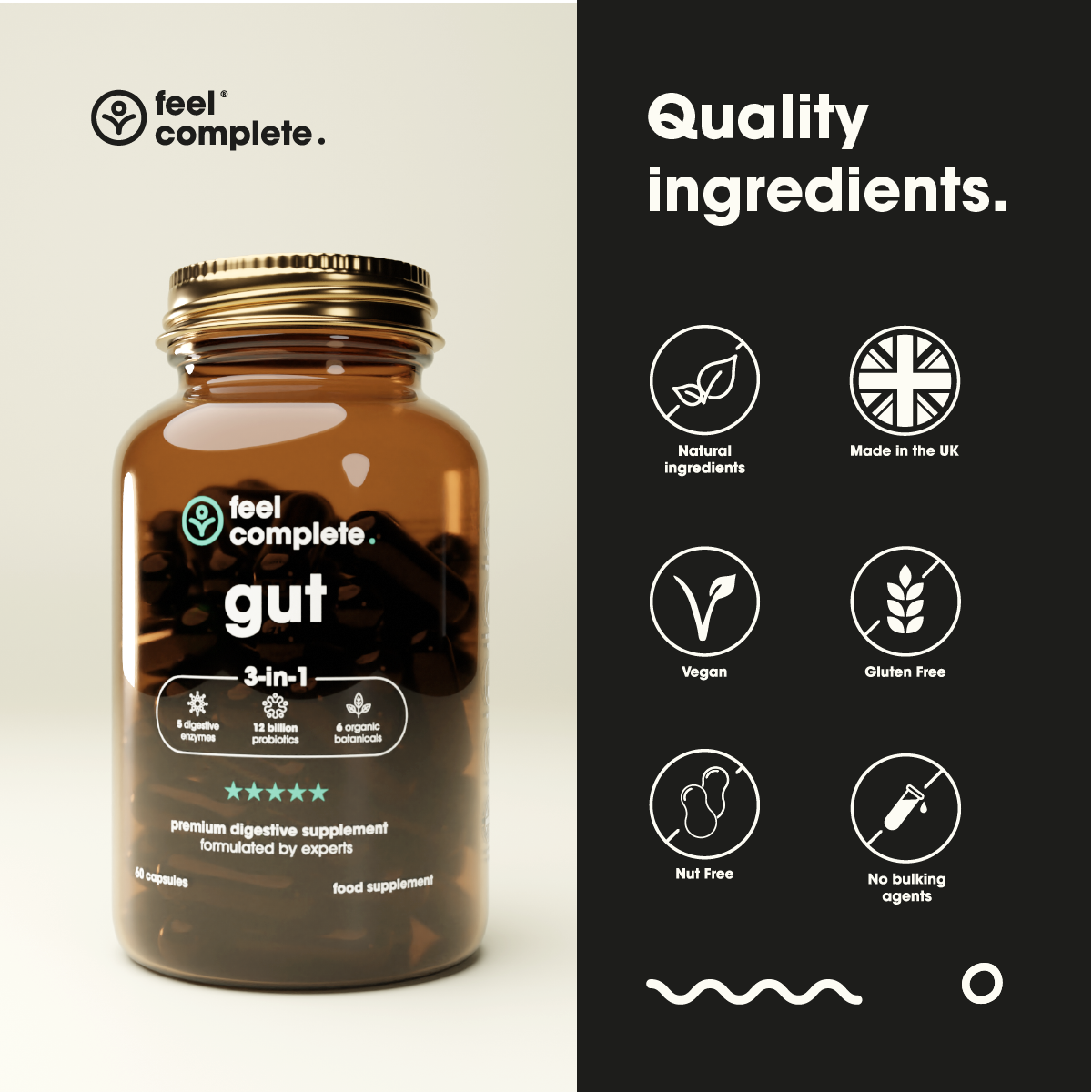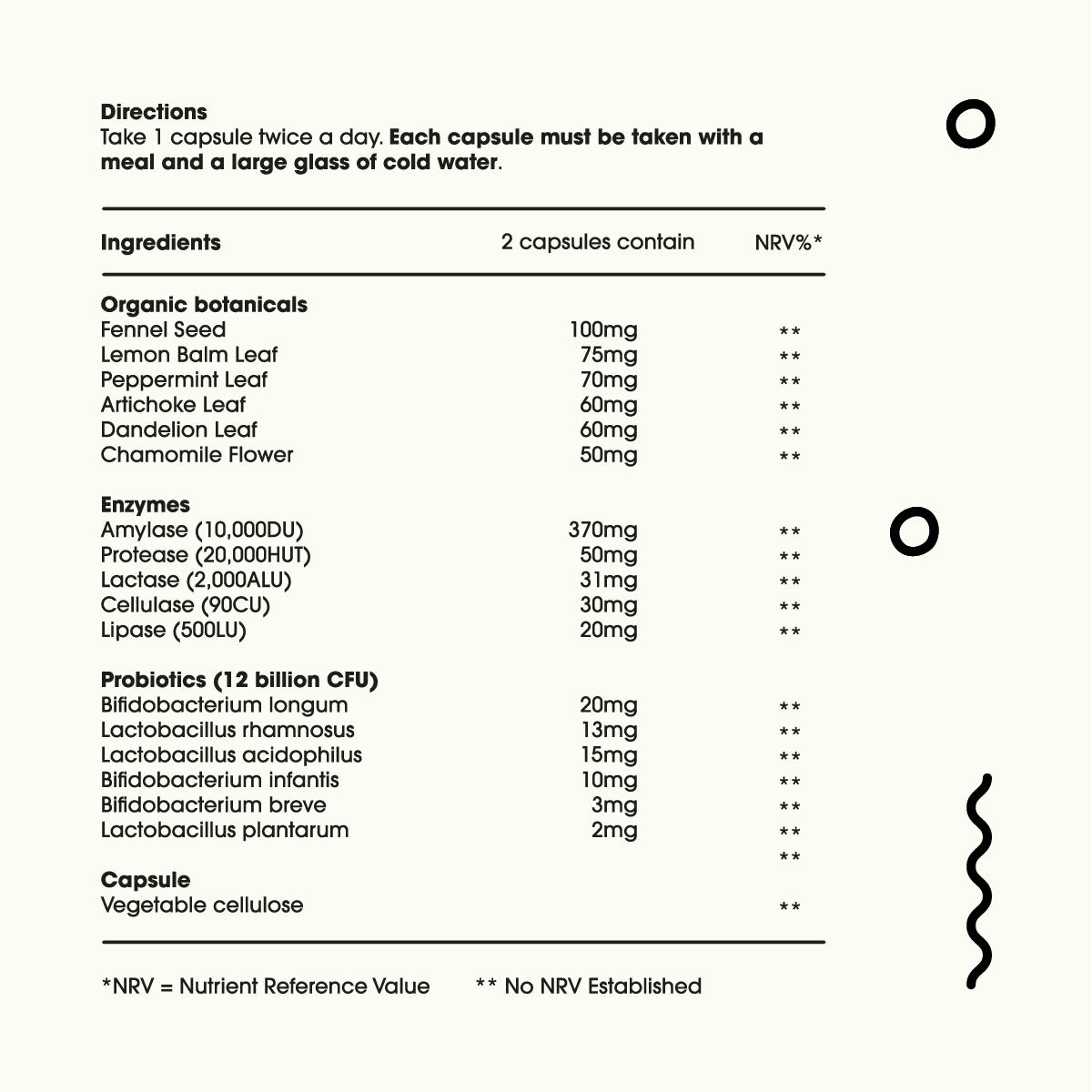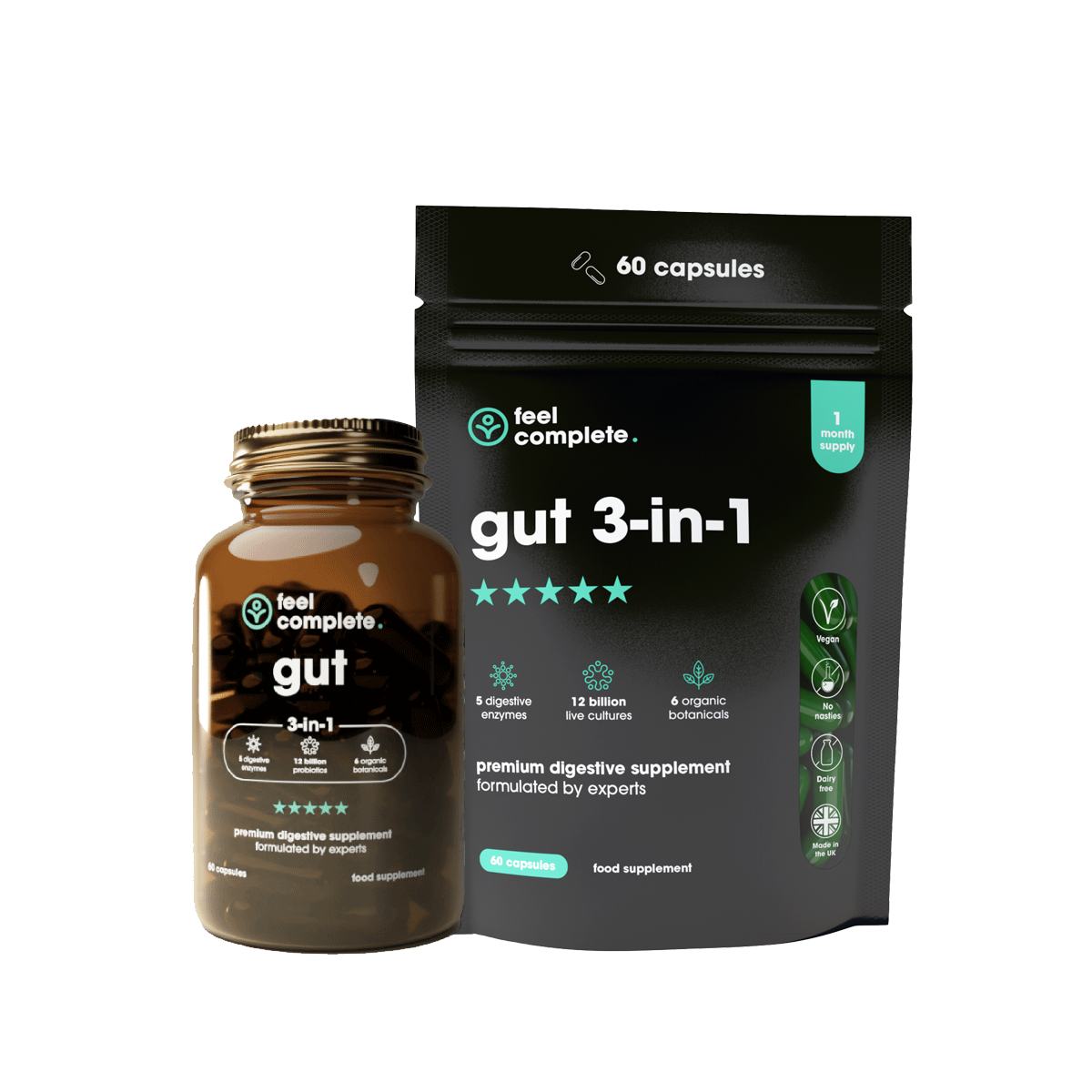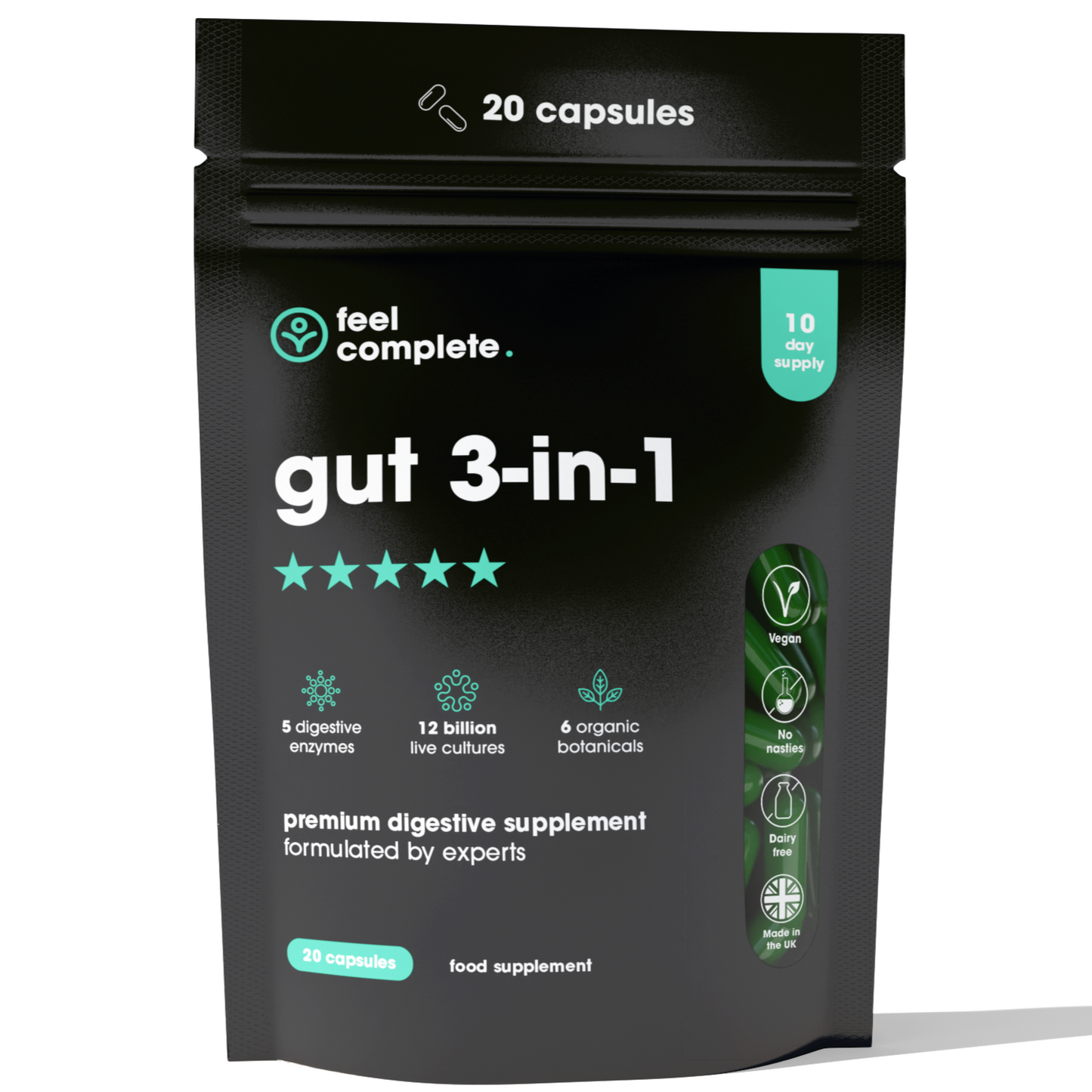What if everything you know about weight loss is wrong? What if counting calories has nothing to do with losing weight? What if weight loss is actually easier than you think? If you're trying to lose weight or have struggled to do so in the past, this may sound like we're teasing you. But honestly, we aren't.
We know losing weight can be tough. Maintaining weight can be even tougher sometimes. But does this mean that losing weight is a losing battle? Not at all! We're here to share with you the secrets of weight loss so you can finally start seeing results.
No more counting calories. No more eating bland foods. No more following fad diets and no more fighting willpower. Ready to learn how you can eat great food and still lose/maintain weight? Let's dig in!
Curious to know how a nutritionist can help you lose weight and still enjoy life? Check out what our nutritionists say in this video:
Why losing weight can be tough
Like many things in life, losing weight isn't as straightforward as we think. There are a lot of factors to consider when it comes to obtaining or maintaining our ideal weight. These factors are what are standing in the way between you and your weight loss goals. But what exactly are they? Let's take a close look at the main things making weight loss tough for most of us:
Temptations
We don't often think about this but we're surrounded by so many temptations that make it hard for us to keep the pounds off. Think about your journey to work, the office, your local shopping centre, the countless cafes that decorate your local high street. Almost everywhere you look, there's food and more food!
The problem is that most of these “foods” aren't actually food. These are products that look like food and are manufactured to look mouthwatering, taste delicious, and be addictive. Most of them are also empty calories, which means they have no nutritional value but contain solid fats and added sugars that lead to weight gain.
And even if you ignore most of these temptations, sooner or later, you'll find yourself ordering something! Maybe you aren't even hungry. Most of the time our cravings for food are a sign that we're thirsty, not hungry. Studies show that about 37% of people often confuse hunger with thirst. [*] This isn't surprising since hunger and thirst impulses are controlled by the same area in the brain – the hypothalamus.
Listen to your body
This is why it's so important to listen to your body. To learn its language. What is it trying to tell you? When it comes to food, it's important to know about mindful eating. The concept is based on being fully present with our food choices and the experience of eating. This also includes learning how to distinguish between when you're physically hungry and when your “hunger” is psychological i.e. based on external cues or cravings.
Knowing your body and its subtle cues can help you avoid the traps of temptations and eating for the sake of it. If you find yourself surrounded by temptations most of the time, especially the ones we've mentioned earlier, you can easily ignore them. How?!
When you listen to your body and understand the food you eat can harm or heal you, those temptations will start to look for what they really are – yucky! Most of the ingredients in these “foods” aren't fit to be consumed by humans. Just think about one of these ingredients – petroleum.
Yep, you read that right! Petroleum – the same substance that's used to power cars, planes and other vehicles – is (also) used to power human beings! This particular ingredient is used to keep these products “fresh.”
Common products that contain petroleum-based synthetic additives include packaged snacks like biscuits, cookies, crisps, and breakfast cereals. You may not always know them by reading the label because the label doesn't say petroleum – surprise, surprise!
What's in your food?
Here are some of the names you'll see on food labels that contain petroleum-based additives:
-
Benzoic acid
-
Sodium Benzoate
-
Butylated Hydroxyanisole (BHA)
- Butylated Hydroxytoluene (BHT)
- TBHQ (Tertiary-butyl hydroquinone)
It's hard to crave or be tempted by foods that contain things like petroleum, no?! We think so, too!
Emotions
Many of us have an emotional relationship with food. We eat when we're happy, sad, stressed, or celebrating. We eat even when we're just bored. Just because. This kind of relationship makes it hard to lose weight because emotions are part of life. We're always feeling something positive or negative so we can't lose weight if food is about emotions.
Confusing information
Eat this, not that. Stay away from this or that. Count calories. No, exercise. Conflicting weight loss information is so widespread that it's easy to get lost. This is another reason why it's so tough to lose weight. You don't know what information to follow. Plus, not all weight loss advice is for everyone. You're different. Your body is different, which means the way your body digests food, absorbs nutrients and burns fat are different to the next person.
Hidden sugars
We know sugar is bad for us. Nothing new there. But even if you do a great job of staying away from sugar, it finds a way to sneak into your diet. Not very nice, we know.
That's why they're called hidden sugars because they're in every food that you probably don't suspect of containing sugar. Hint: Most of them do! Let's take a look at these:
-
White bread – any that don't contain whole grains or whole wheat
-
Cornflakes – most breakfast cereals
-
Salad dressing and cream
-
Pasta sauce, pesto, tomato
-
Oat bars, energy bars, snack bars, breakfast bars
-
Fruit juices and smoothies
-
Most things that are fat “free” (Eat full fat hummus – it's the best!)
- Flavoured and fruit yoghurt
Now that you have an idea, you can see how hidden sugars easily sabotage your weight loss goals. After all, sugar, whether hidden or not, is a huge contributor to weight gain. [*]
Hormone imbalance
Another serious saboteur of your weight loss goal is hormone imbalance. Yes, your hormones have a lot to do with whether you can lose weight or gain weight easily. Consider when you're stressed. One of the hormones your body releases when under stress is cortisol. [*]
This stress hormone increases insulin resistance, which prevents weights loss and even promotes weight gain. Increased levels of cortisol decrease your ability to get pleasure and satisfaction from food. In other ways, you keep eating!
But cortisol and insulin aren't the only hormones that directly impact your weight. Other hormones like oestrogen and leptin, the fullness hormone that tells your brain you're full also play an important role. [*]
Another important hormone that makes weight loss a struggle is thyroid. Your thyroid is a small butter-fly shaped gland that regulates how your body uses energy i.e. your metabolism. High levels of thyroid hormone can contribute to difficulty sleeping, thinning hair, and weight gain, to name a few. [*]
Blood sugar
Though you may not always think about blood sugar imbalances, you probably see/feel the symptoms. Wrinkles, hormonal imbalances, craving sweets, acne, and feeling hungry when you just ate are all signs that your blood sugar is out of balance.
Blood sugar imbalances don't just cause weight gain. They can also contribute to dementia, infertility, fatty liver disease, and type II diabetes. [*] [*] [*]
Pretty scary list of diseases, no? While keeping your blood sugar balanced is key for losing and keeping the pounds off, it's also directly linked to your overall health.
Understanding calories (it's not always as it's hyped out to be!)
At any given moment, about 42 percent of adults (worldwide) are trying to lose weight while 23 percent are trying to maintain their weight. Of those who are trying to lose or maintain weight, 20.4 percent count calories. If calorie counting was a sport, it would have its own tournament!
Counting calories is popular, but does it have any benefits? The short answer is no. The long answer is that our bodies don't process calories the same way. Everything from your metabolism, hormone levels, the foods you eat, stress level and environment impact hunger, fat storage and how you burn calories.
What if we focused more on how we fill our plates? A healthy plate, for example, should contain whole food veggies, fish or red meat, lentils or beans. Ideally, this should be served with whole food fats such as olive oil or avocado. The right plate can help you lose weight and stay healthy.
Bear in mind that like everything else in life, moderation is key. In other words, your servings – even if everything is whole food – should still be enough for your body's needs to be met, but not excessive. How do you know when you've had too much, even a good thing? When you have difficulties getting up after eating or have to undo your belt or buttons!
The problem with counting calories is that it doesn't focus on changing dietary habits. It doesn't address the importance of changing your attitude and relationship with food. Counting calories doesn't empower you to make healthy choices to support your health. This is why our programmes are so important. We give you the tools and support you need to make healthy choices so that you don't only feel empowered but also great.
Why counting calories doesn't work
Counting calories doesn't bring any positive or lasting changes. On the contrary, when we focus on counting - especially empty calories - we feel more restricted, anxious, and more likely to give up. The opposite is also true. When we learn how to support our body with delicious and healing foods, we become happier, healthier and empowered. In short, we begin to enjoy life, and eat to live, not to count.
Losing weight – the healthy (and realistic) way
Like health, weight loss is a journey, not a destination. You want to lose weight without feeling overwhelmed, discouraged or frustrated. Most importantly, you want to lose weight without using a calculator!
How can you do this? It starts with your food. The most important weapon you have at your disposal is eating whole foods. What are these?
Whole foods are nutrient-dense foods that come from the farm. These are foods that are rich in minerals, vitamins, fibre and other nutrients. They don't contain a lot of added sugars, saturated fat and sodium. [*]
Let's take a closer look at whole foods and why they are important for both your weight loss and your overall health.
Best foods for weight loss
Whole foods also have relatively low calories and because they're from the farm - not the factory - they haven't been manipulated to be addictive. They also don't contain harmful ingredients such as those meant for vehicles!
The opposite of nutrient-dense is calorie-dense. Calorie-dense foods are what you find in a typical Western diet of refined carbohydrates, processed meat, packaged snacks and fried foods.
For anyone who wants to lose or maintain weight, a nutrient-dense instead of calorie-dense diet is key. This is why with whole foods, you actually maximise the amount of nutrients you take in without focusing too much on calories! Here are some whole foods you're already familiar with:
-
Avocado
-
Basil, cilantro, parsley and other herbs
-
Beets
-
Berries
-
Bell peppers (red, yellow and orange)
-
Black beans
-
Broccoli, cauliflower, cabbage and other cruciferous veggies
-
Bone broth
-
Cacao (dark chocolate)
-
Carrots
-
Garlic
-
Eggs
-
Green beans
-
Grass-fed beef
-
Kefir, yoghourt and raw cheese
-
Leafy greens (spinach, kale, collards, dandelion greens etc.)
-
Lentils
-
Liver
-
Seaweed
-
Sweet potatoes
-
Wild rice
-
Wild salmon
While the low calorie aspect is appealing, what really makes whole foods superfoods is their anti-inflammatory properties. Chronic inflammation can lead to various health issues including Alzheimer's disease, arthritis, cancer, depression, diabetes, heart disease, high blood pressure, and obesity. [*]
With a whole foods' diet, you'll enjoy two amazing benefits. Firstly, you will be able to lose weight and keep it off while eating delicious food. Just as importantly, you get to reduce your risk of getting these lifestyle-related diseases that are linked to a poor diet. Win-win? You bet!
Bottom line
Looking and feeling good should feel empowering, not overwhelming. It may sound radical, but you can live a healthy life without counting calories, starving yourself or eating bland food. Health and happiness aren't a number's game. They're also not about quick fixes or magic potions – ahem, Weight Watchers.
When your focus is on creating healthy habits, the weight will come off because you're no longer eating calorie-dense foods. Plus, you're no longer stressing about your weight, which itself can promote weight gain!
Earlier we mentioned the importance of having a positive relationship with food by understanding your hunger and practising mindful eating. You also want to focus on quality over quantity, which is why eating whole foods is important as you won't crave unhealthy things. Nourishing foods make you feel great inside out.
If you want to lose weight or simply lead a healthy life, why not work with one of our personal nutritionists? They can help you listen to your body better so you can eat to support your health and weight loss goals. You can also take a personalised report to see what areas you need the most support in. Knowledge is power when it comes to health and your power is always a click away!
Remember - we're here to walk with you every step of the way.






